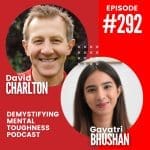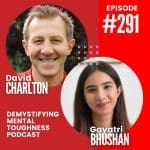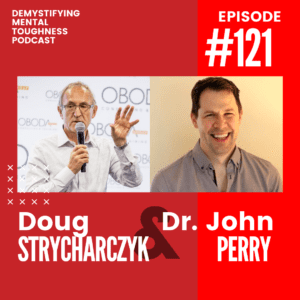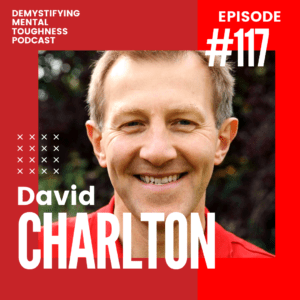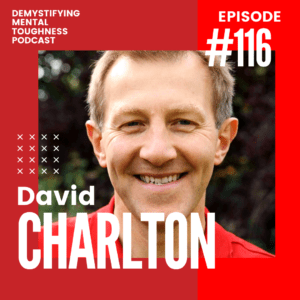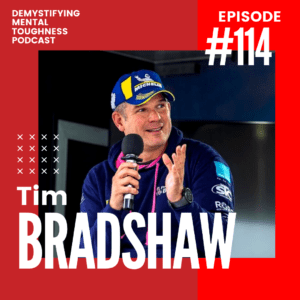Why Mental Toughness is Important: Lessons from Sport, Business and Loss

Celebrity Makeup and Hair Artist, Christina Flach, is the creator and CEO of Pretty Girl Makeup. Her work is inspired by her love of beauty, fashion, music, and art, and she channels these passions into her goal of making her client look and feel beautiful on the inside and out.
Previous clients include actress Hillary Swank, former Secretary of State Condoleezza Rice, 27th White House Press Secretary Dana Perino, Senator Ted Cruz, Forbes magazine, and The New York Times, amongst other notable names and brands.
Christina was married to professional tennis player Ken Flach up to his death after a brief bout of sepsis in 2018. Since then, Christina has been dedicated to raising public awareness of the danger of sepsis, and has partnered with Sepsis Alliance to produce awareness campaigns highlighting Ken’s story. Christina has spoken about the topic on notable news sources such as Fox News, KTVU, NBC Bay Area, Tennis Channel, ABC Bay Area, and CBS.
Following on from last week, again we look at what we can learn from the business world, entrepreneurship and sport and how they overlap. Mental Toughness is discussed in different contexts where I chat with Christina Flach, CEO of Pretty Girl Makeup. Christina was married to former Wimbledon champion and professional tennis player Ken Flach who sadly passed away after a brief bout of sepsis in 2018. We also go onto discuss the difficulties faced when you lose a loved one and ways that you can help yourself.
Key Learning Points:
- In business you need to peak a lot longer than a professional athlete does when you look at the life of your career, therefore self-care is vital.
- You’ll be a better CEO or entrepreneur if you take time out to relax too.
- Mental Toughness for entrepreneurs is about not giving up and learning from mistakes.
- I learned from being a professional tennis player, goal setting and remaining focused is vital.
- My life is not tragic, focusing on positive memories and things I’m grateful for helps me.
- Ken would want me to live my best life and dreams and be happy, loved and laughing.
- “There are no failures and there are no tragedies.”
Connect with Christina Flach:
Connect with David Charlton
Download THE FOCUSED ATHLETE CHECKLIST
Join David @ The Sports Psychology Hub
Instagram, Facebook, Twitter and LinkedIn
Useful Podcast Episodes
Ep084: Jim Afremow and Phil White – Mental Toughness and The Leaders Mind
Ep114: Tim Bradshaw – Because I Can – How To Get Out Of Your Own Way
Ep124: Richard Dorney MBE – Supporting People: What Can You Learn About Resilience From The Military
Ep128: Paula Eddy-Wilcox – Can You Show Vulnerability and Be Mentally Tough? Yes!
Other Useful Resources
Blog – 5 Reasons team captains should work with a Sports Psychologist
Blog – Mental Toughness is a Hugely Valuable Trait
Blog – 5 Ways to Create a Psychological Safe Sporting Environment
Blog – Mental Health Guidance for Coaches When Supporting Athletes
IF YOU ENJOYED TODAY'S SHOW PLEASE SHARE
SUBSCRIBE AND LISTEN ON YOUR FAVOURITE AUDIO PLATFORM
Also, kindly consider taking the 60-seconds it takes to leave an honest review and rating for the podcast on iTunes, they’re extremely helpful when it comes to the ranking of the show and we read every single one of them!

Best Wishes
David Charlton
Global Sports Psychologist who is located near Newcastle Upon Tyne, UK and willing to travel Internationally. David also uses online video conferencing software (Zoom, Facetime, WhatsApp) on a regular basis and has clients who he has supported in USA, Canada, South America, UAE, Australian and New Zealand.
Managing Director – Inspiring Sporting Excellence and Founder of The Sports Psychology Hub. With over 10 years experience supporting athletes, coaches, parents and teams to achieve their goals, quickly.









